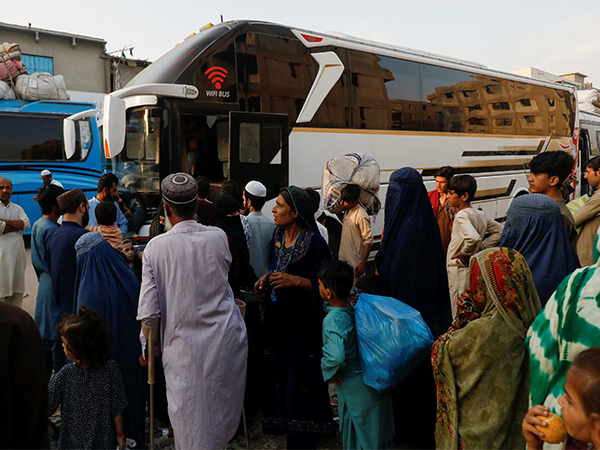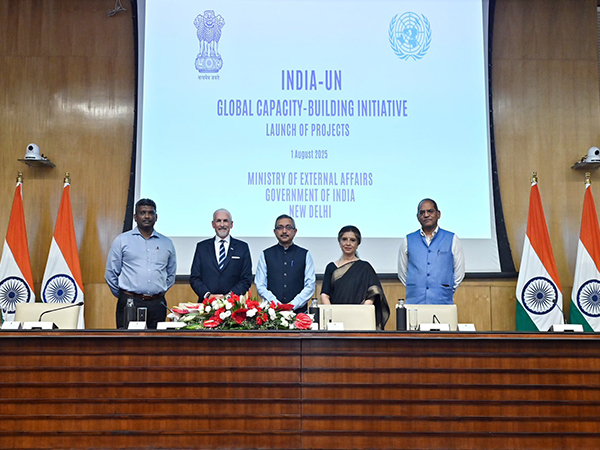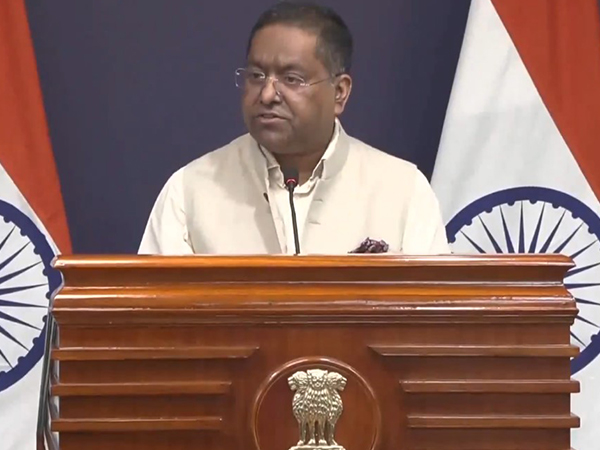
Nearly 1.2 million Afghans return from Pakistan since Sept 2023: UNHCR
Aug 01, 2025
Kabul [Afghanistan], August 1 : Nearly 1.2 million Afghans have returned from Pakistan since September 2023, many to dire conditions, the UN High Commissioner for Refugees (UNHCR) said, warning of a worsening humanitarian crisis if urgent support is not provided, Khaama Press reported.
According to a UNHCR report released Thursday, between September 15, 2023, and June 30, 2025, nearly 1.2 million Afghan migrants crossed back into Afghanistan from Pakistan.
More than 156,000 returnees, including 98,000 registered cardholders, have received humanitarian assistance since their return, Khaama Press reported.
The UN agency noted that women and girls comprise about half of those receiving aid, while approximately 2.2 percent of all returnees are people with disabilities.
UNHCR further stated that over 315,000 Afghans returned in 2025 alone, including 51,000 forcibly deported by Pakistani authorities.
Khaama Press reported that mounting political and security pressures in Pakistan are threatening the long-term status of more than two million Afghan refugees who have lived there for decades.
"Many returnees face bleak conditions, lacking proper housing, jobs, and access to essential services in an already fragile Afghanistan," UNHCR warned.
Aid agencies have urged Afghan authorities and the international community to scale up assistance, warning that "without sustained help, the wave of returns could deepen Afghanistan's humanitarian crisis," Khaama Press noted.
This concern is compounded by Afghanistan's ongoing food crisis. Afghanistan continues to top the list of countries facing severe food insecurity, with more than 12 million people in urgent need of food assistance and 75 percent of the population facing livelihood instability, according to a report by the UN Food and Agriculture Organization (FAO), Khaama Press reported.
The report, released on July 30, highlights that 295 million people across 53 countries are currently experiencing acute hunger -- an increase of 13 million from 2023. Afghanistan remains the worst-affected nation, followed by Ethiopia, Nigeria, Congo, Syria, and Yemen.
Afghanistan has featured consistently on FAO's chronic hunger list since 2016 due to a combination of political upheaval, humanitarian crises, and climate change, Khaama Press noted.
The FAO stated that "widespread poverty remains one of the main drivers of Afghanistan's worsening food insecurity," with the return of over 1.6 million migrants from Iran and Pakistan, declining international aid, and rigid economic restrictions pushing millions deeper below the poverty line.
"According to the UN, 75 percent of Afghanistan's population faces livelihood insecurity, and over 12 million people urgently need food assistance," the report said.
Khaama Press reported that consecutive droughts, widespread unemployment, and damaged agricultural infrastructure have significantly reduced Afghanistan's capacity for domestic food production.
In provinces like Ghor and Badakhshan, prolonged droughts have "destroyed crops and disrupted livestock farming -- the main source of rural income," the report said.
Women and children are particularly vulnerable, the FAO observed. "Restrictions by the Taliban on women's work and education have further cut families off from critical income sources," it added.
The World Food Programme (WFP) has also warned of worsening conditions. "Without increased humanitarian aid, hunger-related deaths in Afghanistan will continue to rise sharply," WFP officials cautioned.
According to FAO officials, as cited by Khaama Press, the food crisis in Afghanistan is the result of a "dangerous mix of conflict, climate shocks, and collapsing livelihoods."
Aid agencies are urging the international community to act. "Without sustained funding and access for relief operations, Afghanistan risks spiraling into one of the world's worst hunger disasters," the report concluded.

























